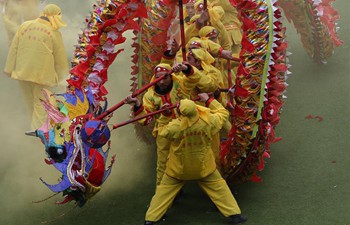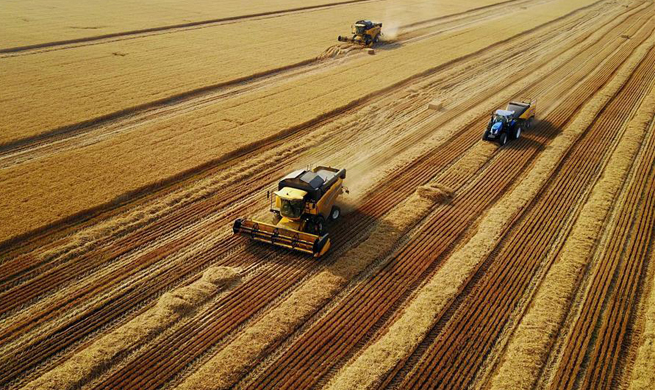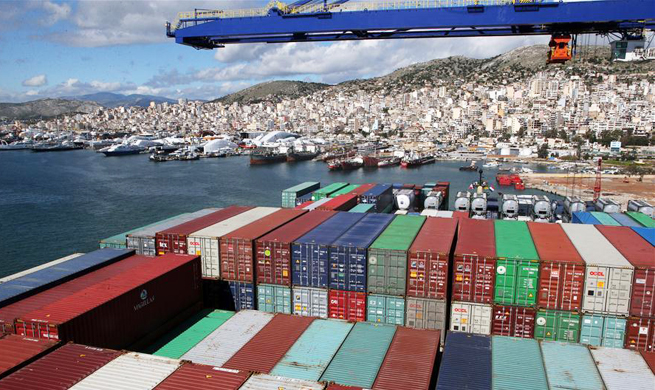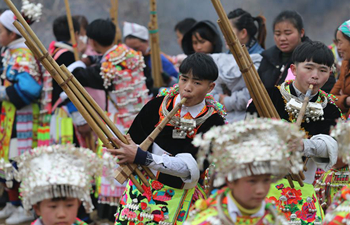DAMASCUS, Feb. 27 (Xinhua) -- The first day of the Russian-proposed humanitarian pause ended with no civilians leaving the rebel-held Eastern Ghouta area east of the capital Damascus.
The humanitarian pause specifies a five-hour pause on a daily basis starting Tuesday to allow civilians to evacuate Eastern Ghouta through a humanitarian corridor at the Wafidin crossing northeast of Damascus.
The state TV said no civilians have left on Tuesday, accusing the rebels of firing five mortar shells at the crossing to prevent people from leaving.
The Russian Defense Ministry also said the rebels' mortar fire on the crossing is preventing civilians from leaving.
However, opposition activists accused the government forces of shelling areas in Eastern Ghouta during the pause, saying one was killed by the government shelling.
In a live broadcast at the Wafidin crossing, sounds of mortar shells striking nearby were clearly heard.
In a briefing in Geneva, UN humanitarian spokesman Jens Laerke also confirmed the continuing fighting in Eastern Ghouta.
"We have reports this morning that there is continuous fighting in Eastern Ghouta. Clearly the situation on the ground is not such that convoys can go in or medical evacuations can go out," he said.
The pause entered into force at 9 a.m. (0700 GMT) and is designed to continue until 2 p.m. in the conflict-torn area.
Such humanitarian pause, however, will take place every day within the same period of time to allow evacuation of civilians from the rebel-held zone.
Despite the failure of civilians evacuation so far, relative calm prevailed in Damascus after the humanitarian pause went into force.
The humanitarian pause comes just days after the UN Security Council adopted Resolution 2401, which requires all parties in Syria to immediately cease clashes and provide a sustained humanitarian break for at least 30 days.
But terror-designated groups such as the Islamic State (IS) and the al-Qaida-linked Nusra Front are excluded from the resolution, as the battles against them continue.
The UN organizations have already sounded the alarm about the situation in Eastern Ghouta, where 400,000 people are believed to be trapped in the sprawling area east of Damascus.
The military showdown started to intensify between the Syrian army and rebels 10 days ago, with mortar shells from rebels hitting Damascus while the Syrian forces continued their massive bombardment against rebel positions in Eastern Ghouta.

















